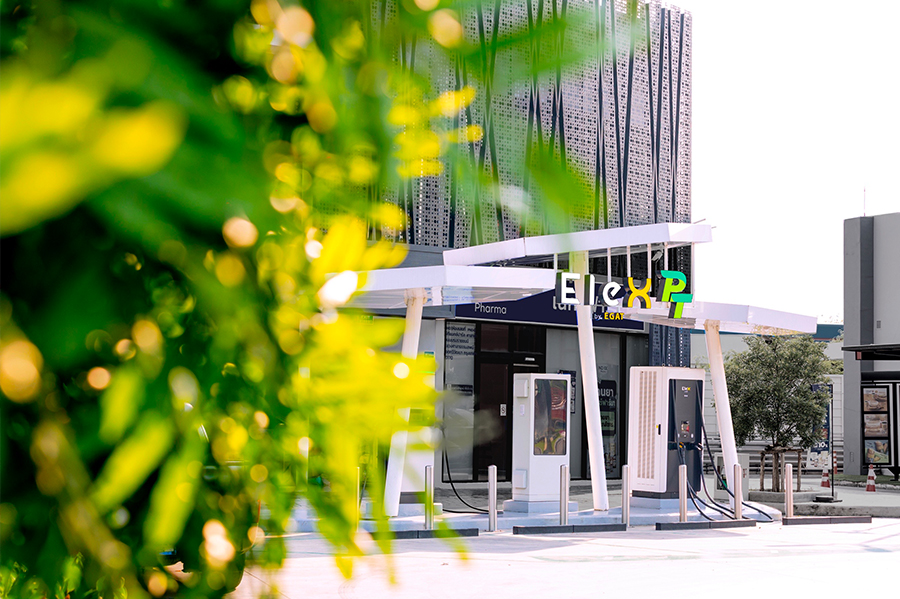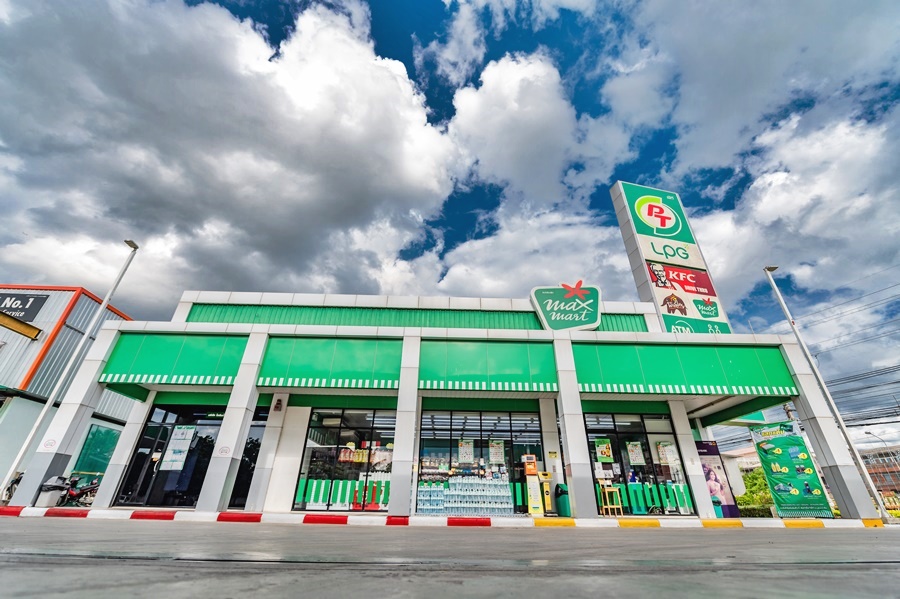Oil and Retail Business
Oil and Retail Business
Oil Business
Fuel products of the Company and subsidiaries can be divided into 2 main types as follows:
- Diesel fuels, specifically high-speed diesel B7 (hereinafter called "diesel fuel")
- Benzene fuels, which comprises octane-95 benzene, gasohol 95, gasohol 91 and gasohol E20 (hereinafter called "benzene fuel")
The Company primarily distributes diesel fuel, catering to the needs of commercial vehicle operators, who are significant customers both directly and indirectly. This emphasis on diesel fuel sales aligns with the prevalent vehicle types registered in Thailand, the majority of which utilize diesel fuel. Furthermore, the Company has strategically expanded its operations, particularly in Bangkok and surrounding areas, resulting in a notable increase in the proportion of Benzene fuel sales compared to 2021’s figures.
The Company operates in the fuel trading business through two types of service stations: Company Owned Company Operated (COCO) stations, managed by Petroleum Thai Corporation Company Limited (“PTC”), a subsidiary, and Dealer Owned Dealer Operated (DODO) stations. The latter purchase fuels from the Company and its subsidiaries, which act as traders under Section 10. In this capacity, the Company provides guidance and support to these dealers on matters such as station layout design, investment strategies, and operational management. The distribution of diesel fuel and benzene fuel sales at each station varies based on the preferences and needs of the target customers in the vicinity.
Moreover, the Company functions as an oil trader under Section 10, supplying fuels wholesale to other oil traders and industrial operators requiring large volumes of oil per batch. The purposes of these purchases may vary; for example, to resell the products to other oil traders or utilize them in manufacturing processes within their industrial facilities.
Charging Station Service (For EVs)
The Company aims to expand its service stations to encompass all products. In response to the increasing prominence of electric vehicles (EVs), it officially introduced electric charging stations at PT service stations in 2021, collaborating with industry leaders and government entities such as the Electricity Generating Authority of Thailand (EGAT). These charging stations have been strategically installed along major routes and popular tourist destinations under a brand called 'Elex bt EGAT PT.' The initiative aims to offer electric charging services for EVs while promoting clean energy adoption and reducing greenhouse gas emissions."
The electric charging station caters to both PHEV (Plug-in Hybrid Electric Vehicle) and BEV (Battery Electric Vehicle) models. Operating in direct current (DC Fast Charge) format at PT service stations, it can charge electric vehicles at up to 150 kilowatts per hour. Users can initiate charging and pay for the service through ELEXA by scanning the QR code provided. Electric vehicle owners can access the service in two ways: 1. By booking in advance within a 30-kilometer radius of the charging station. 2. By walking into the PT service station equipped with the charging facility.
As electric vehicle (EV) consumption saw significant growth in 2023, both government agencies and private sector service providers have made aggressive strides in expanding their charging station networks and developing supporting infrastructure and ecosystems. This concerted effort aims to better serve customers and capture larger market shares. Consequently, EV users now have a wider array of options to choose from when it comes to charging their vehicles. The Company places great importance on delivering excellent customer experiences, particularly focusing on reliability aspects such as: 1) The quality of electric charging stations and their installation standards by EGAT, ensuring they can provide full and rapid electric vehicle charging, typically taking around 30 minutes per vehicle on average. 2) Ensuring reliability in the use of the application, which serves as a crucial link between users and charging stations. Furthermore, the Company offers additional benefits within its corporate environmental framework and various discounts to customers who utilize charging services. This includes holders of PT Max Card and PT Max Card Plus, as well as users of the Max Me application. These efforts aim to provide customers with a more comprehensive and satisfying experience overall.
Retail Business
In addition to oil trader through service stations, PTC serves as an investor and operator of Max Mart convenience stores, strategically positioned within PT COCO and DODO service stations. PTC meticulously selects suitable service stations based on several criteria:
- Stations with high foot traffic and robust sales figures are prioritized.
- Consideration is given to proximity to residential areas, commercial hubs, government buildings, and well-connected routes.
- The station must have adequate space to accommodate a convenience store.
PTC has refined its approach to convenience store management to enhance operational efficiency and meet evolving customer demands. This involves modernizing building structures, upgrading store aesthetics, enhancing equipment, and diversifying product offerings to align with customer preferences. As of the end of 2023, the Company had successfully established 345 Max Mart branches. Moving forward, PTC aims to further expand the Max Mart footprint, ensuring comprehensive coverage across diverse regions to seamlessly integrate end-to-end services within PT service stations and effectively cater to user needs.





